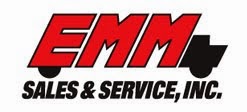Farming and livestock provides a great deal of revenue for many people across the United States, and with today’s technology, the amount of farmland available, as well as the fertility level of American soil, it’s no small wonder. It’s because of this that we not only have food, but have it fresh and of a high quality (and quantity!). However, having a farm that can produce enough food to sell to be successful is one thing; being able to produce enough crops to feed your livestock is something else entirely.
For that reason, feed mills have become very successful in areas where farming and livestock are prevalent. Feed mills have the ability to store and ship large quantities of grain and animal feed to where it’s needed. While the storing of feed is fairly simple, it’s the transportation that can be difficult.
To ship bulk feed safely and efficiently to a various types of customers, a specially designed piece of transport equipment is needed. Unlike the days of the past when feed was always delivered in bags or box trucks, the increased demand from today’s farmer has changed how present-day feed deliveries are made.
Lower Costs and Higher Profits
When selling feed, your costs will be dictated by how efficient you can be in your deliveries. The heavier the transportation equipment for the feed, the less product you can actually carry due to legal weight transport limitations. The trick is to find something that is both ultra-durable and light, which will allow you to carry a heavier payload, all while reducing fuel consumption. Aluminum has become the preferred metal of choice for this very purpose.
Additionally, you must consider just how big your client’s needs are. If you’re servicing several small farms, it’s possible to use smaller equipment; however, in adding more farms or larger orders, you’ll have to make multiple trips or buy larger equipment that can haul more payloads. While making more trips allows you to use the current feed transport equipment you have, it can increase maintenance costs, be less efficient, and run up the fuel costs.
Having larger equipment, on the other hand, might be a large initial investment, but it also means that you have the ability to be more efficient, allowing you to service more customers of your own and grow your business. This ultimately allows you to pick up more business and become more successful.
What to Do When You Arrive
It’s not enough to just have a means of transporting the feed. You also need to have an efficient means of unloading the feed to the storage area or bins. Whether you’re selling bag or bulk feed, unloading is just as important and as technically involved as transporting. With bag feeds, it’s a little easier, as it can be moved manually or on skids with a forklift. Bulk feed, on the other hand, requires a bit more effort, as well as equipment.
Feed can be unloaded by air pressure through pipes or an overhead stinger into the storage bins or through an auger unload system that would include an auger boom to get the product to the top of a storage bin. In the past an air system was popular because it was the earliest system to be adopted for this purpose. However, the air system is slower than an auger system and requires more equipment, raising the costs. In recent years, an auger unload system has been preferable due to its higher capacity; additionally, companies incur less cost purchasing this type of equipment.
The air unload system will be still used for years to come due to older farms not having the ability to unload feed any other way, but in time, the auger system could come to supersede the air unload system entirely. Developing a system, as well as fostering an understanding with your clients as to how their feed will be unloaded, can go along way towards making a customer happy, as well as loyal.
Service, Service... Service
When looking for the equipment, it’s important to find a dealer who is not only reputable, but who is also able to service the equipment they sell you. EMM Sales and Service Inc. is a prime example of such a dealer. Based out of central Pennsylvania, EMM specializes in a wide selection of bulk feed trucks.
In the late ‘90s, an effort to better serve our clients, we relocated to a facility that allows us to not only sell, but also service the equipment we sell in our 18,000 square foot facility. It’s this dedication to service that has allowed us to become one of the largest feed transportation equipment dealers in the country.



